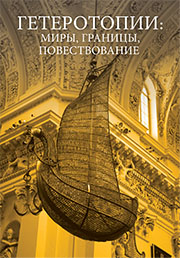Гетеротопии потустороннего в снах о покойниках (на западнопричудском материале)
Heterotopias of the Other World (Based on Dream Tales about Deceased in Folk Tradition of The Western Shore of Lake Peipus)
Author(s): Angelika SteingoldSubject(s): Customs / Folklore, Human Geography, Studies of Literature, Structuralism and Post-Structuralism, Theory of Literature
Published by: Vilniaus Universiteto Leidykla
Summary/Abstract: Living on the western shore of lake Peipus, native Russians (most of them are Old Believers) preserve their folk traditions till now. They believe that spirits of the dead can come to the alive in dreams. There are two kinds of dream tales depending on who – the deceased or the sleeping person – is the initiator of the “meeting” in the space of dream. The author’s purpose was to demonstrate both the common and specific features of the narratives putting stress on the characteristic properties of dreams’ space. In the most of them, the deceased is the initiator of the “dialogue” with the “visionary”. He “comes” for the purpose of informing his relatives about his own “needs”. The second cluster consists of dreams initiated by the “visionary”. He “visits” the other world to get information about the state of soul of the departed man. Space in the first category of “visions” is very close to the space of this world (it seems like the deceased’s own home and its environment), but it is reflected in the mirror of a dream. The space dreamt in the other group of “visions” belongs to the next world. It is situated somewhere above. The dead “live” in buildings with a great number of separate rooms – like in hostels or hospitals. Each person is located in a small enclosed space. His movements and positions are fully limited there (he can sit, lie, but can’t go, run etc.). Both types of dream sites may be defined as utopias and heterotopias as well, though the latter one is more heterotopical.
Journal: Literatūra
- Issue Year: 57/2015
- Issue No: 5
- Page Range: 77-87
- Page Count: 11
- Language: Russian

